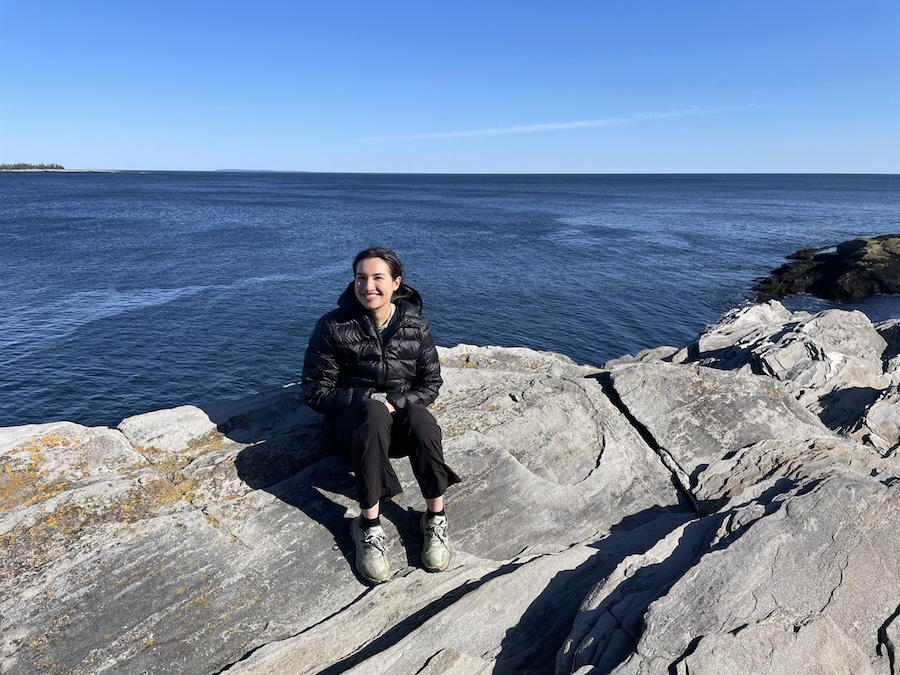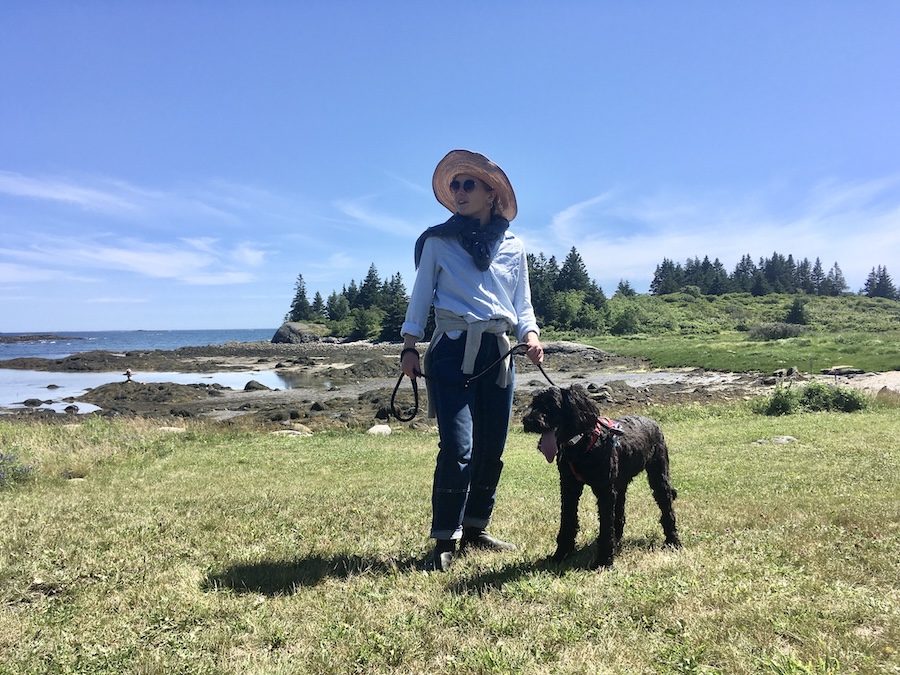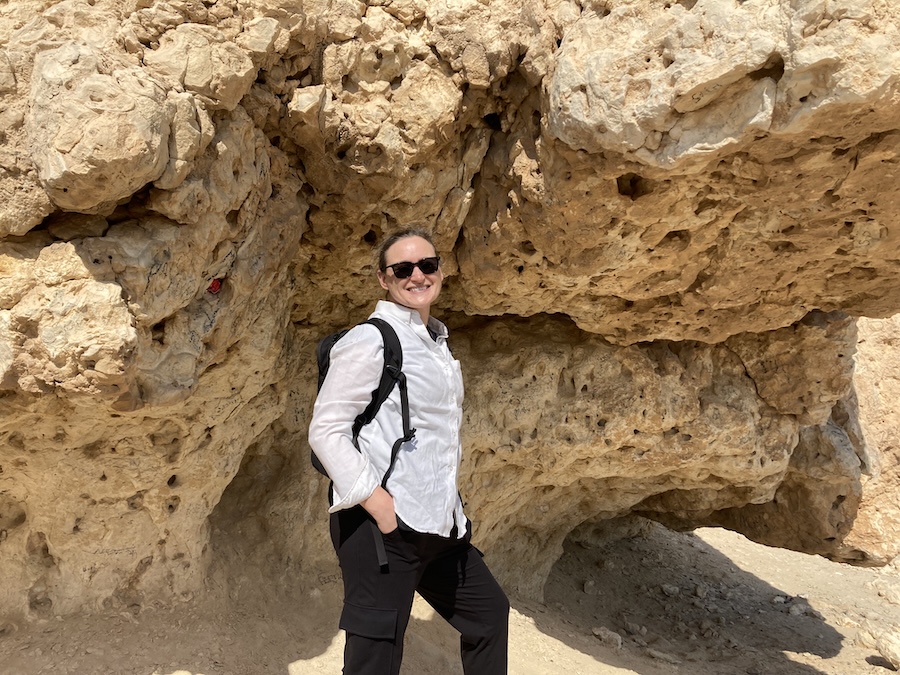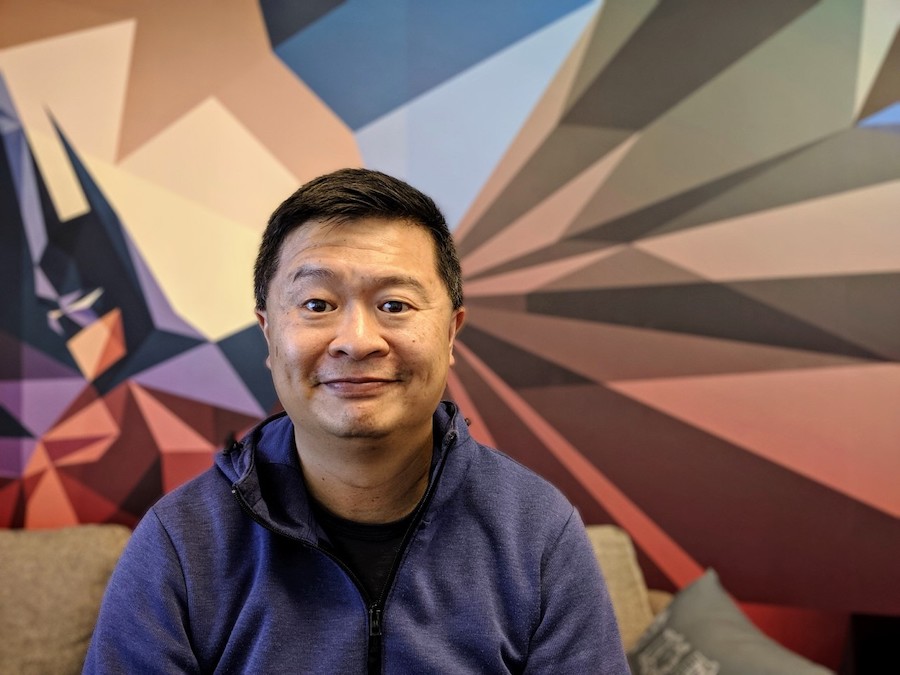What have you been up to since graduating from Bowdoin?
All kinds of things! Most recently, I was proud to earn my master of arts in historic preservation from Goucher College, a program I loved working my way through bit by bit over several years. Being a student again was a true gift each semester, but the highlight was definitely a study-abroad course in Nepal, where I had the opportunity to explore historic preservation in a completely different environment and culture. My thesis examined the preservation of Maine’s historic grange halls through an equity lens, arguing for the members of active-use granges to have greater access to preservation resources to help ensure the ongoing care of their culturally and historically significant buildings.
I’ve always been particularly passionate about public and local history, so my current role as executive director of the Lincoln County Historical Association is the perfect fit for me. I get to develop and promote history programs on a wide range of topics while also working for the ongoing preservation of three National Register–listed buildings in Lincoln County, Maine: the 1754 Chapman-Hall House, the 1761 Pownalborough Court House, and the 1811 Old Jail with its attached 1839 Jailer’s House. Each of these places has an incredible story to tell as it helps us interpret local history, and we’re constantly working to uncover fuller narratives that deepen our understanding of the past.
I love my job, and every day I feel fortunate to be working in the field I’m passionate about. I get to support the stewardship of historic places while encouraging a broader appreciation for local history in our communities. Many of our programs are very popular, and it’s always rewarding to see a big turnout of people interested in learning more about our past.
Why history?
I remember agonizing over what to declare as a major, despite what now feels obvious in hindsight: I’ve always been captivated by the past and by drawing connections between history and the present. As a kid, I volunteered at my local historical society after tagging along with a neighbor, and I always felt at home among the historic objects there. Even before I declared a major, I found myself taking all kinds of history courses just for fun. When it finally dawned on me that I should major in history, everything clicked. I truly believe that a deeper understanding of the past helps us make better sense of our lives and the world around us. Placing ourselves in the context of time offers an important perspective on the experiences we are having and the issues we face today. In my view, the world would be a better place if everyone had a healthy appreciation for historical knowledge and inquiry.
Are there any classes, professors, or experiences that had a lasting impact on you?
I just loved being a student, and I remember most of my classes fondly. In the history department, Dan Levine particularly taught me to question what I thought I knew of the past, Susan Tananbaum introduced me to new perspectives, and Patrick Rael challenged me to think more deeply. I also took classes in a wide variety of other Bowdoin departments, and I’m glad I took full advantage of the opportunities offered by a liberal arts education.
What advice would you give to current students or recent graduates interested in your field?
Don’t underestimate how rewarding it can be to work at a small history nonprofit. It’s incredibly fulfilling to support a mission you truly believe in, especially at the community level. There’s something really special about seeing the direct impact of your work and knowing you’re helping to preserve and share the objects, places, and stories that have shaped where we are today!




